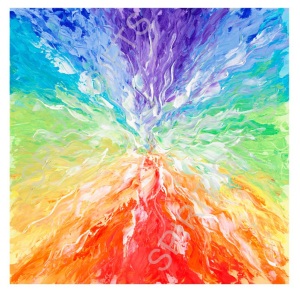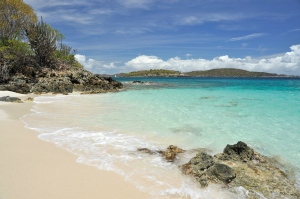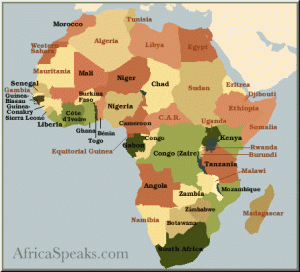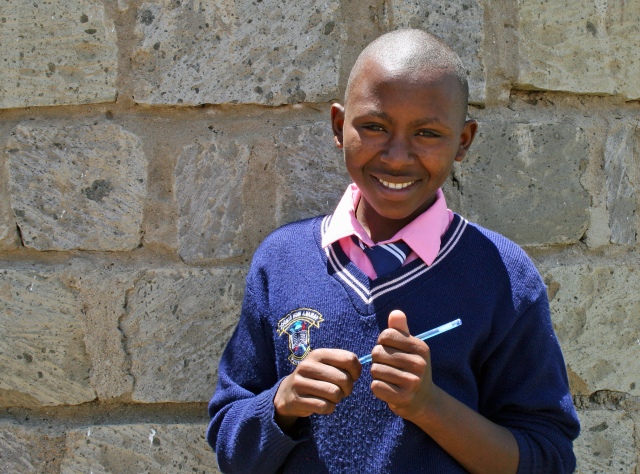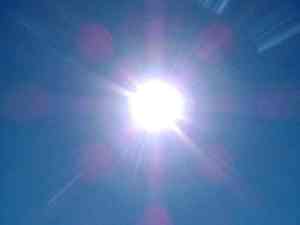
Many people are concerned about spending time in the sun these days. Over the past few decades there has been an exorbitant amount of hype through all types of media that exposure to the sun is detrimental to your health.
It is very easy to believe that what we hear repeatedly from television, magazines, radios and peers is obviously true. While there are many factors that can contribute to an unhealthy relationship with the sun (from poor diet, over-exposure, poor-hydration, and environmental pollutants) spending time in the sun can be incredibly healing, and many people around the world are missing out on this vital key to a healthy lifestyle.
As technology has improved, we have been able to see more clearly what the effects of the sun on the human body are. However, much of this information has been distorted or ignored for the simple reason that it is possible to make money selling protective products to a public scared of something they face on a daily basis.
But let’s stop for a moment and think about it a bit more deeply.
The sun is the center of our solar system, giving energy and life to the Earth and all its inhabitants. For thousands of years, humans have known that the sun was a beautiful healing source, as long as we respect its magnificent power.
Far beyond the superficial appeal of a healthy-looking tan, the benefits of responsible sunbathing are numerous and exciting. Sunshine will increase your energy, mood, libido, and immune system.
Fight Depression
Being in the sun causes your brain to produce serotonin and endorphins which increase your mood and can be very helpful in fighting depression.
Fight Insomnia
Sunbathing can even fight insomnia. Your brain has an internal clock which is set when you are in the sun, as well as causing melatonin production, both of which lead to a better chance of getting a good night’s sleep.
Clear Your Skin
Skin irritations such as acne, rashes, eczema, and athlete’s foot can be cured by sun exposure. Not only does getting some sun clear your skin, it can also give you a healthy glow.
Balance Hormones
The sun can help regulate the production of hormones. Lying in the sun can often help decrease symptoms of PMS or menopause. Being in the sun also stimulates the pineal gland of the brain, regulating its secretions, which may allow for more creativity, insight, and mindfulness, as well as helping to improve your mood.
Break Down Toxins
Sunbathing can help your liver function, and assist in breaking down wastes and toxins in your body which may cause disease or cancer.
Increase Circulation
Exposure to the sun increases both white and red blood cell count and helps the blood circulate more efficiently.
Get your Vitamin D
And last but not least is the most well known benefit of sunshine: Vitamin D. Exposure of the skin to the sun’s rays is the best way to attain this essential nutrient. Vitamin D helps the body regulate the immune system, increase calcium absorption, which leads to strong bones, and avoid kidney stones, diabetes, and even obesity. D3 is also thought to improve cognitive functions and decrease the chances of developing Alzheimer’s disease.
So how do you sunbathe responsibly, in order to receive the sun’s gifts without being over-exposed? The first and perhaps most important thing to know is how long you should spend in direct sunlight at one time, as well as the best times of day. The length of time varies depending on your skin complexion*, as well as how much sun you have been exposed to previously.
* Melanin absorbs the UV rays from the sun and the amount of melanin in your skin determines its color. Very light-skinned people have little melanin and need to be more careful about the duration of their time in the sun.
It is important to understand that the time of day you choose to sunbathe is vital. You should never sunbathe when the sun is at its full intensity, at the height of the sky. A good rule of thumb is to avoid prolonged exposure to the sun between the hours of 11:00 AM and 3:00 PM, though this of course varies from season to season.
It is very important to increase your time in the sun gradually, generally starting at 10 to 30 minutes a few times a week, depending on your skin color. As you spend more time in the sun, your skin produces more melanin, so the next time you are sunning, you have more ability to absorb the sun’s rays. Get a good idea of how much you can personally handle, and never stay out long enough to become red or burned.
You might be wondering why I’m not insisting upon the use of sunscreen at all times. This is one of the largest misconceptions about sunbathing. Not only does sunscreen not prevent skin cancer, it can cause cancer in several ways.
When you wear sunscreen your body does not produce Vitamin D3 from sunlight. This amazing vitamin is incredibly important for your health and is known to help prevent numerous types of cancer.
The vast majority of sunscreens contain a myriad of harmful chemicals. Where do they go? They are absorbed into your skin, where they wreak havoc on the immune system, making your body more susceptible to many diseases, including cancer. These chemicals can even enter your bloodstream and cause damage while being carried throughout your entire body. They can also be washed off in the water, contributing to the contamination of our planet’s precious water supplies.
Wearing sunscreen also gives you the misconception that you are completely protected and can stay out in the sun as long as you would like. People using sunscreen can think themselves invincible and stay in the sun for periods of time that (when combined with the chemicals they are using) can cause lasting damage to their skin or their health.
There are many toxic substances commonly found in sunscreens, which have never been approved by the FDA. Not all types of ultra violet radiation are blocked by sunscreen, including UVA rays, which do not cause sunburn, but can cause skin cancer. Sunscreen can also be known for clogging pores and causing or aggravating acne.
If you are in a situation that requires exposure to the sun for a long time, try to wear a wide rimmed hat and drink a lot of water. If the time in the sun can’t be avoided, try a vegan, chemical-free sunscreen from a company like Aubrey, Devita, or MyChelle.
The safest ways to protect your skin are to pay attention to how much sun your body can handle, drink lots of water, and to eat a healthy, clean diet*. Lack of important nutrients such as vitamins A, C, and E can make you much more likely to get burnt.
* Animal fats and animal protein, a well as junk food or rich foods can enhance your cancer risk while in the sun. On the other hand, fruits, veggies and whole grains provide cancer-fighting nutrients and antioxidants that will also protect your skin and the rest of your body.
The sun is a beautiful thing, and its light and warmth are required by all life on Earth. Take joy in the amazing sensation of being in the sun, and gladly soak up its benefits, just do it responsibly. Getting no sun at all is just as unhealthy as getting too much. Be a wise and responsible sunbather and your body and mind will thank you.
Article by Laura Shults

